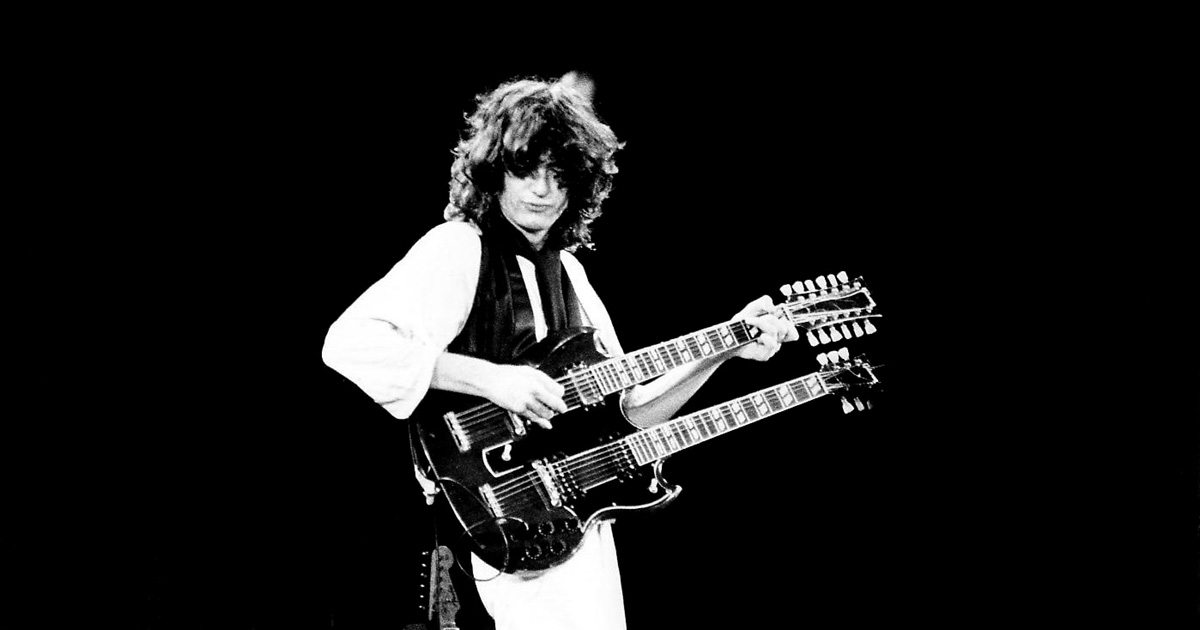LONDON — Legendary Led Zeppelin guitarist Jimmy Page is releasing his “totally original” and “not-at-all stolen” life story this month, entitled Black Mamba Voodoo Jive Groove, which details his life growing up in Louisiana as a young, black American.
“This book contains anecdotes about my childhood in the bayou: like when I learned slide guitar from my blind Uncle Willie,” Page revealed during a press conference, held outside of Page’s Victorian-era Tower House in London. “Later chapters detail how I sold my soul to the devil at a desolate crossroads in Mississippi, and that time I foolishly ran into a burning venue to save my guitar — my beloved Gibson ES-355 named ‘Lucille.’”
Reporters, however, were quick to question Page about similarities in his stories to famous black American musicians that came before him — questions that drew a defiant response.
“People have asked whether I’ve exploited the stories and work of others to further my success. But how could I have done that, when I’ve never even heard of Robert Johnson, the United States of America, or the song ‘Taurus’ by the band Spirit?” Page wondered.
Unfortunately for Page, some publications are already damning his book, alleging plagiarization of and unattributed inspiration from a litany of African-Americans in the Deep South.
“This is typical of Led Zeppelin — everyone knows they jacked the music and lyrics of black Americans in the 60s and 70s, without ever acknowledging or crediting the originators,” explained Josh Collishaw, the senior Culture editor of Vox. “Of course they’d continue this cycle in book form. Why would we expect anything different in 2019?”
“Though, to be totally honest… I do find myself reading Page’s version of Charley Patton’s biography pretty often,” conceded Collishaw. “It just goes a little harder.”
Just before press time, American rock band Greta Van Fleet announced their own autobiography — which recounts the members all growing up as the same sickly English child/guitar god in the 1950s.
Photo by Andrew Smith.

